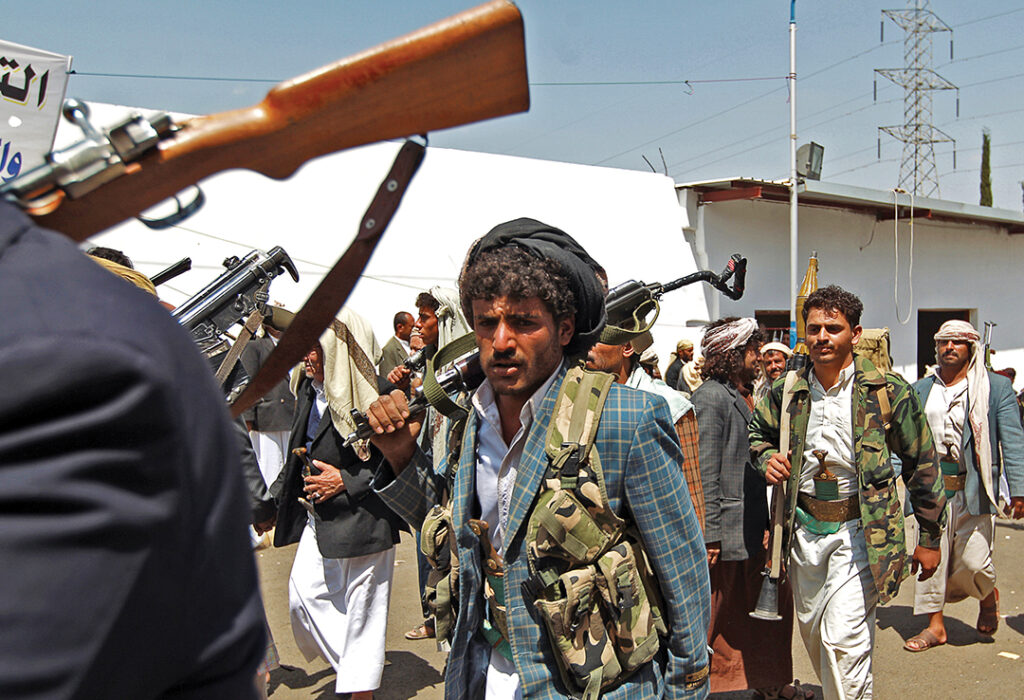MAJ. GEN. MOHAMMED ZAID MAHMOUD IBRAHIM, YEMENI DEFENSE ATTACHE TO THE UNITED STATES
When ancient man began his journey toward building society, he first formed families, then clans, then tribes. It was clear that an individual needed to exist within a body of people that would provide him with protection from inherent dangers and power imbalances should he try to engage the world by himself.
The strength of the clan is paramount when its members, individually or collectively, are exposed to imminent danger and try to gain membership to a group in which they find safety and comfort.
Yet these same tribes that have provided a sense of human belonging for centuries can, in more than a few modern instances, actually hinder the advancement of human health and happiness. Nation-states dedicated to providing for all its citizens can find progress thwarted when tribal loyalty takes precedent over national affiliation.
Origins of tribes
Membership in a tribe is based on many factors, such as ancestry, religion, dialect, caste, profession and geography. A tribe will regularly attempt to strengthen ties between its members by promoting intermarriage, thus strengthening the tribal loyalty and making it easier to control. This taboo against marrying outside one’s group led to an abundance of tribes and caused them to come into greater proximity with one another. In light of the human propensity to seek power, the proliferation of tribes created endless conflicts, mainly stemming from glory seeking, blood feuds or attempts to extend power and obtain wealth.
Fighting can erupt between tribes at the slightest provocation. Any offense by another tribe, be it an individual or collective act, constitutes an insult to all members of the offended tribe. In this way, hostilities and conflicts continue in an inescapable cycle.
It is for this reason that the ultimate goal behind divine instruction and the discipline of political science has been to create a single framework for a community of individuals that transcends the boundaries of a single tribe and unites different groups.
Tribalism confronts modernity
Today, we are witnessing radical changes in the Arab region at the hands of groups that still oppose the concept of the nation-state. We are also witnessing the rise of a handful of autocratic regimes among Arab states. This clash creates the chaos that has struck the region in the form of revolutions, coups and wars.
This is occurring alongside changes taking place in fledgling states trying to integrate the values of citizenship with the role played by traditional institutions such as tribes that maintain order and social cohesion.
The values of citizenship and the values of tribes need not conflict. In fact, some believe, in line with the thinking of British-born 18th-century philosopher Thomas Paine, that much social organization that we associate with government actually develops naturally through human interactions.
In his famous book “The Rights of Man,” Paine noted that order “existed prior to government, and would exist if the formality of government was abolished. The mutual dependence and reciprocal interest which man has upon man … create that great chain of connection which holds it together. … Society performs for itself almost everything which is ascribed to government.”
EXPLOITATION OF Tribalism IN YEMEN
Perhaps one of the most significant challenges facing states is the employment of tribes in conflict, which entails using the media to manipulate tribal members. Yemen finds itself confronted with an extreme amplification by social and other media of tribalism on the flow of events. At other times, when it suits these manipulators, the impact of the tribe is minimized. Political systems and powerful elites in societies have exacerbated tribalism for their own needs.
This tribalism can be cause for alarm when Yemen discovered that its peaceful population actually owned 60 million weapons, some used in the ongoing conflict.
Future of tribes
Societal development is measured in generations and cannot be narrowly evaluated over short stretches of time. Therefore, it is necessary to revitalize these societies in a more precise and in-depth manner. We must also avoid making macro-level studies before examining the elements, tools and mechanisms of movements of societies, including those mentioned above. By this, we mean the tribe as a strong social component present in all aspects of social life that adapts to developments according to the resources it accumulates.
This subject is inseparably linked to the study of the distribution of power and the study of the real extent of power enjoyed by tribes and clans in general, especially when we consider the speed with which tribes confront these shifts.
We will discover that the tribe, like all other components of society, has been affected by the full range of changes taking place in society. Their role has changed and the stereotype of tribes within the community has been affected in various ways depending on the nature of each society.
Nevertheless, tribal thinking can be detrimental to societal improvement. Each tribe has its own lineage and each faction has its base of support. This leads to a self-interested approach to politics. The world becomes nothing more than a big projector that replays the same film over and over but with different actors in the same roles. Events are repeated with the same results. Forces offstage continue to impact our lives politically, economically, socially and culturally.
This shows unequivocally that states cannot be built on tribes and clans without the rule of reason. They are the foundation of happiness and well-being that brings humans together. It has been a pillar of civilization and progress and is the only way to eliminate ignorance, underdevelopment and poverty. It is as important as water and air. Reason produces enlightenment, particularly since it evolves from human intelligence. Societies can evolve by abandoning bad habits and destructive customs.

